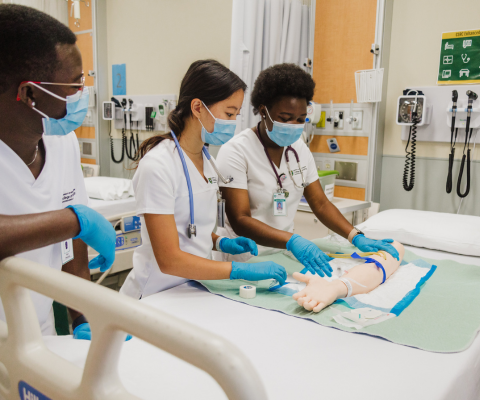How international research partnerships are helping us tackle world health issues


Many of society’s most pressing problems are being addressed through international research collaborations. Through these partnerships, the world’s preeminent scholars are cooperating to find solutions to tackle world health issues, combat climate change and innovate new life-changing technologies.
The same health issues tend to permeate all societies—many related to age, illness and disease. Researchers across the globe have been working together to solve or mitigate both common and rare health issues. International research collaborations play a key role in advancing health care screening tools, prevention strategies and treatments.
The world saw unprecedented research collaboration during the COVID-19 pandemic and with the development of a vaccine. That spirit of teamwork has not died down, with the University of Saskatchewan’s Vaccine and Infectious Disease Organization (VIDO) recently joining the Coalition for Epidemic Preparedness Innovations (CEPI)—a global partnership of over 30 countries dedicated to accelerating the development of vaccines for diseases like Ebola and Middle East Respiratory Syndrome (MERS) and ensuring vaccine access to all.
At the Université Laval, a collaboration with the University of Cambridge has led to the discovery of at least four new genes that are associated with breast cancer, and could help us identify women at higher risk. This can lead to improved screening, genetic counselling and risk reduction strategies going forward. The discovery also helps us understand more about cancer development in general.
A partnership between Simon Fraser University and Finnish tech company MEGIN has seen the university’s ImageTech Lab outfitted with the latest magnetoencephalography (MEG) technology—a scanning technology used for neuroimaging. With this new technology, researchers will be able to gather data to bring advancements to brain disease and injury treatment, understand what makes the brain more resilient to disease and create simulations for optimal brain health. With more testing and data, researchers could learn more about the trajectories of risk for disorders like dementia and develop preventive strategies.
Without partnerships like these, we wouldn’t see the level of progress and innovation in our healthcare systems that we have over the last few decades. To keep these discoveries coming, we must keep prioritizing international research collaborations.